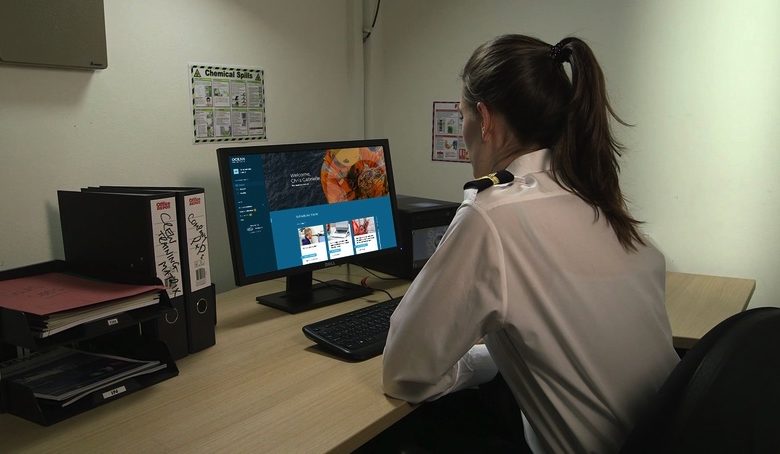MLC updates bring internet access for all

Seafarers’ groups have won the right to mandatory social connectivity for crews – including internet access – in updates to the Maritime Labour Convention 2006 (MLC), but are disappointed that shipowners and governments may seek to charge for it.
The MLC is an international treaty designed to protect seafarers’ rights and has been ratified by more than 100 countries, who represent over 90% of the world fleet. One of its provisions is that governments, shipowners and seafarer representatives meet periodically to keep the convention under review and up to date. The latest Special Tripartite Committee (STC) meeting ended in Geneva on May 13, with agreement on a number of changes including a commitment to better social connectivity for seafarers.
Being able to keep in touch with family and friends isn’t just a nice-to-have, it’s a basic human right
“We’ve learned a lot during the covid period and that has been driving us to improve the MLC,” said Mark Dickinson, vice chair of the International Transport Workers’ Federation’s (ITF) Seafarers’ Section, STC vice-president and spokesperson for the Seafarers Group. “Being able to keep in touch with family and friends isn’t just a nice-to-have, it’s a basic human right. That’s why we fought so hard for seafarers to be given internet access and to have a mandatory provision in the MLC.”
Despite the fact that ships already have the technology to provide internet access, shipowners dug their heels in over the change. They insisted that they should be able to limit access and be able to charge seafarers for internet connectivity.
The Seafarers Group lobbied to ensure that any charges levied on seafarers remain an exception, and if any charges are imposed that they are reasonable. Governments were also encouraged to increase internet access in ports and associated anchorages without cost to seafarers.
The meeting failed to reach agreement on changes to the MLC’s terms on repatriation under the MLC that were being demanded by the Seafarers Group. The Seafarers Group demanded that the breadth of shipowners’ responsibility to repatriate seafarers at the end of their contracts be extended to the point at which seafarers land at their home location
For most seafarers, the journey home is considerably longer than shipowners currently cover. A Filipino, for example, who lives in Davao may find themselves dumped at Manila Airport 2,000 km away from home. They then have a subsequent air journey of around 2.5 hours, costing them hundreds of dollars. In that final leg, the employer is no longer covering insurance, medical or other costs.
A group of EU governments also sought an amendment to ensure a clearer commitment to the de facto maximum period of service of 11 months that seafarers can serve at sea before shipowners are obliged to get them home. Shipowners, and some governments, insisted on flexibility and requiring seafarers 12 months sea time to qualify, especially for trainees. The Seafarers Group refused to concede, citing fatigue and safety concerns.
The STC did agree a number of significant changes to the MLC, including personal protective equipment must be made available in sizes that suit seafarers onboard, including for women. Improved access to free drinking water, quality provisions and balanced diets were agreed as part of food and catering rules.
There was also clarification on responsibilities for governments to provide information to seafarers on mandatory systems of protection that must be put in place by recruitment and placement agencies.’
The STC also adopted several resolutions that will guide the future work of the committee. These included further work on the eradication of sexual harassment at sea, the sustainability of the financial security provisions provided by P&I Clubs and insurers, and the ability of seafarers to enforce seafarers’ employment agreements against shipowners.

Good news to be taken with many grains of salt. Will the lack of connectivity be among the detonable items? Can this be enforced? I know there are people working hard, but without enforcement the industry keeps coming up with bags of hot air. Governments are the main culprits in making sure some of these things don’t work. As for the shipowners, there is no shortage of news about investments that shipping companies are making in new buildings and technology etc, yet shipowners find it so hard to treat seafarers humanely, to provide them with amenities that they would not deny themselves or their families. In the midst of the pandemic experience, they are fighting tooth and nail to not see the best way forward for seafarers.